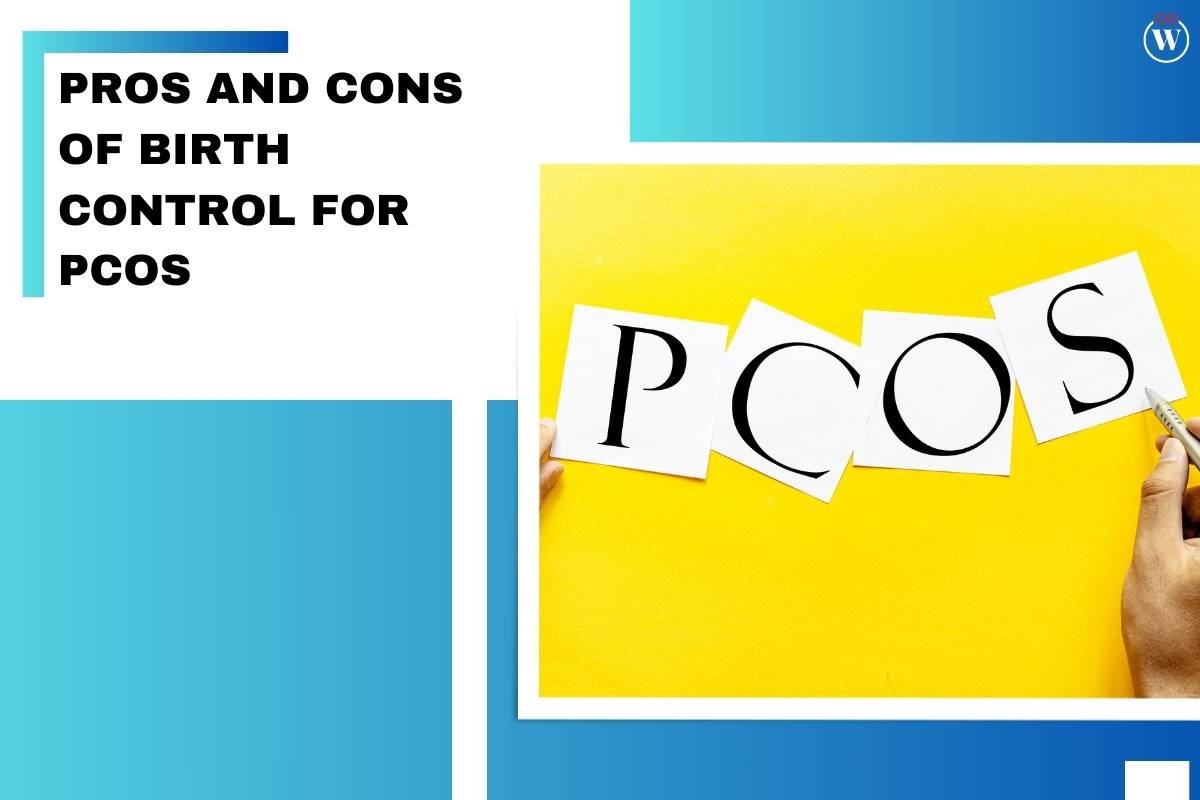Polycystic ovary syndrome (PCOS) is a common hormonal disorder affecting many women of reproductive age. One of the most frequently recommended treatments for PCOS is hormonal birth control. Understanding the pros and cons of birth control for PCOS is essential for those seeking effective management of their symptoms. This article will delve into the benefits and potential drawbacks of using birth control for PCOS, providing a comprehensive overview to help you make an informed decision.
What is PCOS?
PCOS is a condition characterized by irregular menstrual cycles, excessive androgen levels (male hormones), and polycystic ovaries. Symptoms can include acne, weight gain, hair thinning, and infertility. While the exact cause of PCOS is unknown, it is often linked to insulin resistance and hormonal imbalances.
Pros and Cons of Birth Control for PCOS as a Treatment
Hormonal birth control is commonly prescribed to manage PCOS symptoms. It includes oral contraceptive pills, patches, vaginal rings, and injections. These methods work by regulating menstrual cycles, reducing androgen levels, and addressing other related symptoms. Now, let’s take a look at both pros and cons of birth control for PCOS.
Pros of Birth Control for PCOS
1. Regulation of Menstrual Cycles

One of the primary benefits of birth control for PCOS is the regulation of menstrual cycles. Women with PCOS often experience irregular periods, which can be both inconvenient and concerning. Hormonal birth control helps to establish a regular menstrual cycle by providing consistent hormone levels, reducing the risk of endometrial hyperplasia (a condition where the uterine lining becomes too thick).
2. Reduction in Androgen Levels
High androgen levels are a common issue for women with PCOS, leading to symptoms like acne, excessive hair growth (hirsutism), and hair loss. Birth control pills contain estrogen and progestin, which help lower androgen levels, thereby reducing these unwanted symptoms. This improvement can enhance a woman’s self-esteem and overall quality of life.
3. Improvement in Acne and Skin Condition
Acne is a prevalent symptom of PCOS due to elevated androgen levels. By regulating these hormones, birth control can lead to significant improvements in skin condition. Many women report clearer skin and fewer breakouts after starting hormonal contraceptives.
4. Prevention of Ovarian Cysts
Women with PCOS are prone to developing ovarian cysts, which can be painful and potentially problematic. Birth control pills prevent ovulation, which reduces the risk of cyst formation. This can lead to less pain and fewer complications related to ovarian cysts.
5. Enhanced Fertility Planning
While birth control is primarily used to prevent pregnancy, it can also aid in fertility planning for women with PCOS. By regulating menstrual cycles and managing symptoms, birth control can help women better understand their ovulation patterns. When they decide to conceive, they can stop using birth control and work with their healthcare provider to optimize their chances of pregnancy.
6. Reduced Risk of Endometrial Cancer
Women with PCOS are at an increased risk of endometrial cancer due to irregular menstrual cycles and prolonged exposure to unopposed estrogen. Hormonal birth control reduces this risk by inducing regular periods and balancing hormone levels.
Cons of Birth Control for PCOS
1. Potential Side Effects
Like any medication, birth control pills can have side effects. Common side effects include nausea, weight gain, mood changes, and breast tenderness. While many women tolerate birth control well, these side effects can be bothersome and impact daily life.
2. Cardiovascular Risks
Hormonal birth control can increase the risk of blood clots, especially in women who smoke, are over 35, or have a history of clotting disorders. This risk needs to be carefully considered, particularly for women with additional cardiovascular risk factors.
3. Impact on Mental Health

Some women report mood swings or depressive symptoms when using hormonal birth control. Although not everyone experiences these effects, they can be significant for those who do. It’s crucial to monitor mental health and discuss any changes with a healthcare provider.
4. Temporary Fertility Delay
After discontinuing birth control, it may take some time for a woman’s natural menstrual cycle to resume, potentially delaying fertility. This delay can be frustrating for women who are eager to conceive.
5. Not Addressing Underlying Insulin Resistance
While birth control can manage many symptoms of PCOS, it does not address insulin resistance, a core issue for many women with the condition. Insulin resistance can lead to weight gain and increase the risk of type 2 diabetes and other metabolic disorders. Additional treatments, such as lifestyle changes and medications like metformin, may be needed to manage insulin resistance effectively.
6. Individual Variation in Effectiveness
The effectiveness of birth control in managing PCOS symptoms can vary from person to person. Some women may not experience significant improvements, while others may find it highly beneficial. This individual variation means that birth control may not be the best solution for everyone.
Alternative Treatments for PCOS
While discussing the pros and cons of birth control for PCOS, it’s important to mention alternative treatments that may also be beneficial.
1. Lifestyle Changes
Lifestyle modifications, such as a healthy diet and regular exercise, can significantly improve PCOS symptoms. Weight loss can reduce insulin resistance and lower androgen levels, leading to better symptom management.
2. Medications

Other medications, such as metformin, can be used to address insulin resistance. Anti-androgen medications, like spironolactone, can help manage symptoms like acne and hirsutism.
3. Fertility Treatments
For women struggling with infertility due to PCOS, fertility treatments like ovulation induction medications or assisted reproductive technologies (ART) may be necessary.
4. Herbal and Natural Remedies
Some women with PCOS explore herbal and natural remedies to manage their symptoms. Supplements like inositol and herbal treatments such as spearmint tea have shown promise in small studies. However, more research is needed to confirm their efficacy and safety.
Making an Informed Decision
When considering the pros and cons of birth control for PCOS, it’s essential to consult with a healthcare provider. A doctor can help assess individual health needs, discuss potential risks and benefits, and determine the most appropriate treatment plan. It’s also important to have open and ongoing communication with your healthcare provider to monitor how well the chosen treatment is working and make any necessary adjustments.
Conclusion
The decision to use birth control for PCOS is highly individual and should be made based on a thorough understanding of the pros and cons. Birth control can offer significant benefits, such as regulating menstrual cycles, reducing androgen levels, and improving acne. However, potential side effects, cardiovascular risks, and the need to address underlying insulin resistance are important considerations.
By carefully weighing the pros and cons of birth control for PCOS and exploring alternative treatments, women with PCOS can find a management plan that best suits their needs and improves their quality of life. Regular consultation with a healthcare provider is crucial in navigating this journey and ensuring optimal health outcomes.









